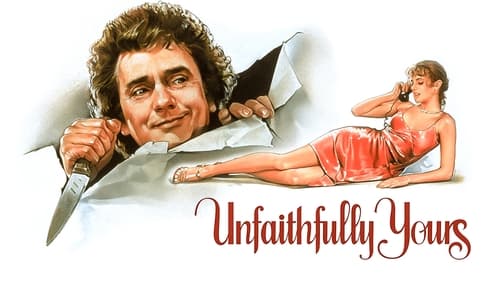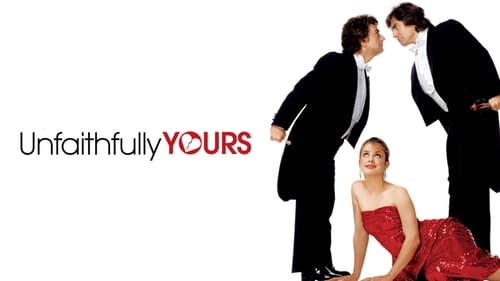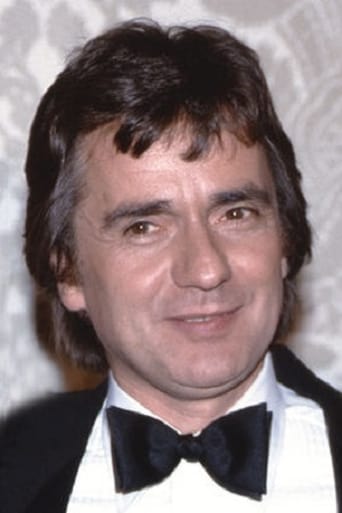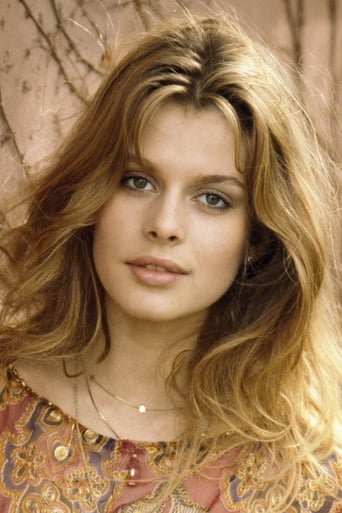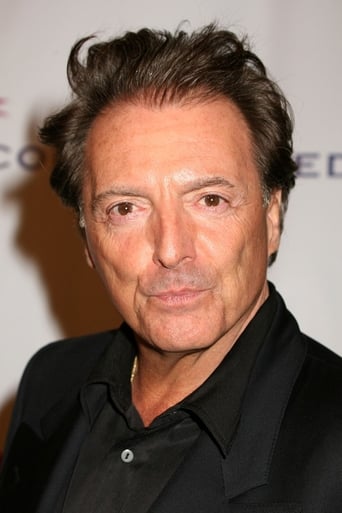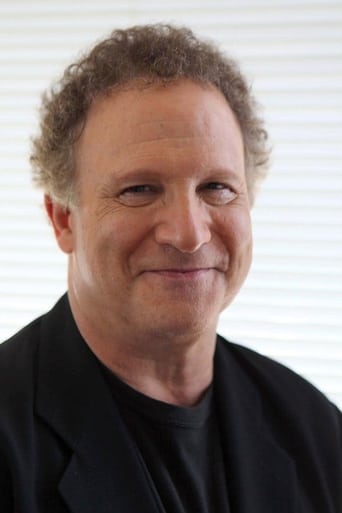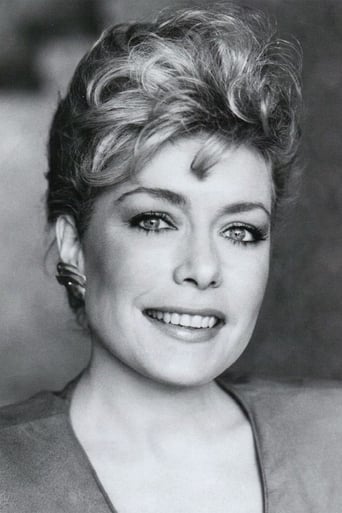jotix100
Preston Sturges, that genius of the American cinema, made a statement when he wrote and directed the 1948 film, which in comparison with this 1984 attempt seems to be brilliant. Not only was the film great, it had a wonderful cast of accomplished comedians with Rex Harrison, Linda Darnell, and Rudy Vallee in the main roles.Howard Zieff's version suffers in contrast in that is not as effective and even handed as the original one. Where Preston Sturges went for subtlety and sophistication, Mr. Zieff goes for a more splashy comedy, that at times seems forced.Basically, the film doesn't improve on its model. Dudley Moore goes overboard with his take on Claude Eastman, the conductor. Natassja Kinski is terribly miscast as the Italian actress Daniella, who is married to Eastman. Armand Assante does what he can.The film, photographed in Manhattan, takes us to places that are not around any more, like it's the case with the Russian Tea Room, where a few scenes were shot.Find the original for a more satisfactory view.
Bjorn (ODDBear)
Moore is a symphony conductor who believes his wife is cheating on him with fellow musician Assante. During a performance he devices a plan to get rid of them both. All works perfectly in his mind, but the execution is another matter indeed.Simply hilarious at times, this remake of the 1948 original benefits hugely from an extremely appealing cast and witty script. Even Albert Brooks, who's usually rather tiresome, is very funny as Moore's friend who accidentally sets all things in motion.These comedies that only use misunderstandings as the film's driving force are completely hit or miss. This time it's all well written and, under some unusual circumstances sure, it could happen. The ending, when Moore executes his plans, is nothing short of fantastic, he's simply at his comedic best. It's the conclusion really that misses, sort of cheap but up until then it's a lot of fun.
Didier (Didier-Becu)
Don't ask me why but I absolutely wanna see all films with Nastassja Kinski and with this in mind I know I have to see some bad ones as well. Is this one a stinker? Not really but it's just one of those eightiescomedies in where a goldfish is funnier than Dudley Moore himself. Still wearing his playboyattitude (never could get that!) from "Ten", Moore plays the role of Claude Eastman who happen to be one of the most respected musicconductors. He just has married his new Italian wife Daniella (never understood why she wasn't Russian as madame Kinski speaks with a very Russian accent) and due to a stupid householdkeeper Giuseppe (Richard Libertini, the sole man with whom you can laugh even if he plays a complete idiot) his wife is followed by a detective as Claude told him to keep an eye on her.... This comedy could have been made in the 60's as this is pure Boeing Boeing-style, you know one situation leads to another situation that is based on false suspicions and so.... Naaah you saw it million times before, you saw it million times better but you never saw it with Nastassja Kinski
P.M. Reilich
This film marks the culmination of the most prolific, popularly loved form of music that the human race ever conceived. That is, the Romantic style. You may find, for example, a CD of pianist Horowitz produced a couple of decades ago entitled "The Last Romantic" - and you might understand the sentiment behind such a title. It is a dying breed of music. Rather, it is dead. Left are museum pieces rehashed by earnest musicians who love the style, or at least the memory of it, but performed/recorded for audiences/listeners who for the most part don't understand it. For to understand it, one must absolutely not be pragmatic. And as we've all been told time and again of late, if you're not pragmatic (if you haven't gone to college, for example, in order to obtain a degree/career) you don't have a life. Few these days, not even crack dealers, are willing to trade monetary responsibility for an enhancement of their souls.Likewise, Dudley Moore acted the lead in this film, and in doing so, he didn't create much of a life, in terms of this film being appreciated by the mainstream. But Moore was one of the funniest comedians that ever graced American film/sound stages. His improvised drunk bits rival Jackie Gleason's improvised drunks. Of course nowadays such drunk humor is politically incorrect, which marks yet one more creative form that has recently bitten the dust. Oh well, at least kids are safe from drunk drivers.But the greatest moment in this movie was the violin battle. You see, it's a prerequisite for talented, narcissistic classical/Romantic musicians, such as Dudley Moore (pianist), to hold a dark sense of humor. It's the kind of passive resistant, anti-successful state of mind that made Charlie Brown, Woody Allen, Bartleby, John Lennon and countless negative/alternative reasoning popular during the 60s-70s. And that alternative culture, or revolution, was merely a revamping of an earlier, more formidable anti-capitalism known as the period when occurred the French and American revolutions. In music, this was the time of Beethoven's rise to fame. This style he and others (even Mozart to some extent) propounded is known as the Romantic style. And the single greatest musical influence upon these western European proponents of the Romantic style was the music emanating from the streets: Gypsy music. It's also important to remember that such Gypsy music was itself influenced by a combination of east European folk music and the traditional music of the middle east, an area of the world from which all western civilization is derived, and thereby for which all of us should have reverence, or at least respect.Basically what we're talking about here, what was the greatest influence upon the invention and prosperity of the Romantic music style, is the harmonic minor scale, and the claiming of this scale upon the hearts of a vast majority of music lovers world wide 1750-1980. It is a scale that gave birth to Romantic styled chromaticism, the most prolific harmonic form ever. In its early stages, when Mozart and papa Haydn dabbled in it, women and other faint hearted individuals tittered. When Beethoven got hold of it, such women literally fainted in the aisles. That's how naturally such chromaticism is capable of affecting the emotions of people. It requires an open heart, however. Today such Gypsy styled music is a laugh; that's how jaded western civilization has become. The smallest of minds are bold enough to regard it as merely "Jewish music," which informs us that its demise is likely, at least partially, the result of anti-Semitism.Such Gypsy/Jewish etc. scale's greatest instrument, or agent provocateur: the violin. Hence, the extraordinarily emotional/comedic violin battle scene in this film, a rare tribute to this dying style of music. If there are any film makers, or any creative artists, who are interested in bringing back to vitality such Romantic/Gypsy/Jewish/harmonic minor scaled music, seeing this film might give them a good start in the right direction. It should also be stated that the Gypsy music that has recently surfaced in "World Music" and in university studies of Ethnomusicology, while more authentic, has, by way of pedantically narrowing the interpretations, caused the less authentic Romantic style to be ignored in its works.

